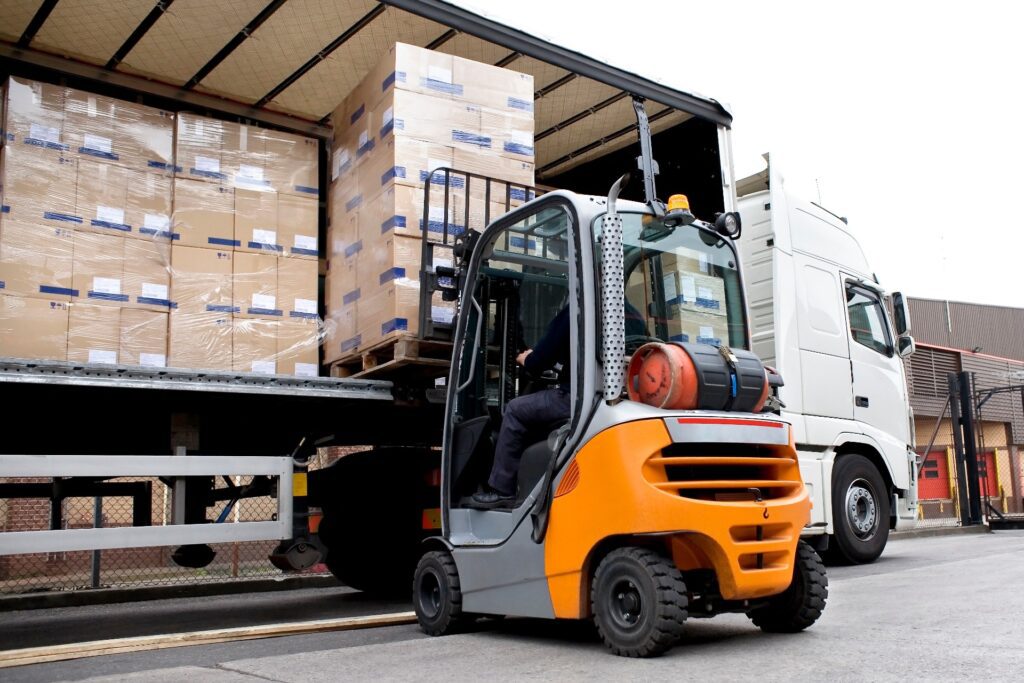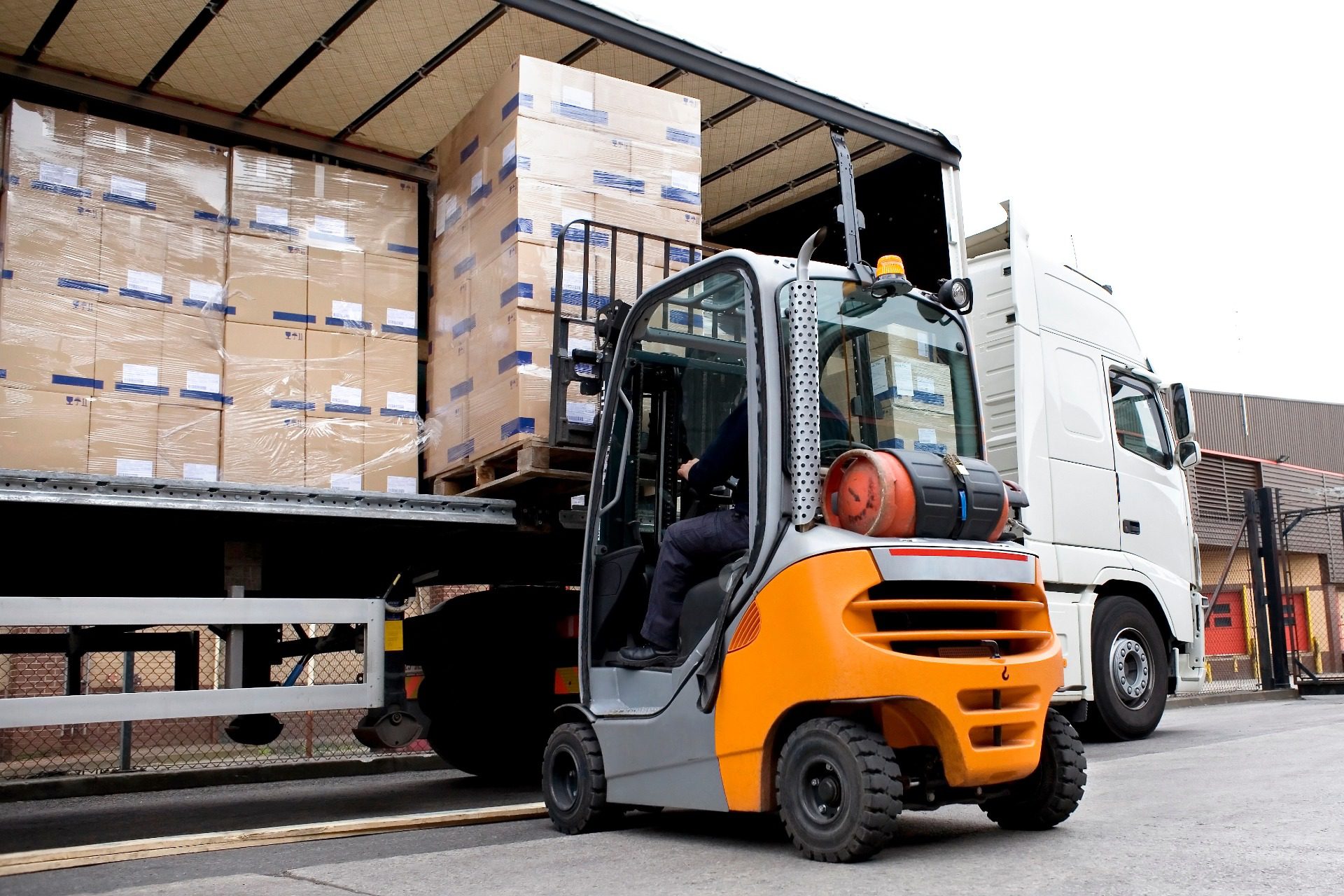It may come as something of a surprise, but more than 60 percent of companies outsource their logistics needs annually. Third party logistics (3PL) providers offer a wide range of services that facilitate and oversee things such as the transportation of goods and materials, order fulfillment, warehousing, and aspects of information technology, among many others.
Rather than invest your hard-earned profits into finding real estate and becoming experts in warehouse operations, or developing a fleet of trucks, or spending valuable time brokering freight transportation deals, companies can outsource part, or all, of their logistics needs to 3PLs. This strategy allows growing businesses to take advantage of lower costs and improve efficiencies. By understanding precisely what a 3PL does and how that impacts your operation, you will be able to make an informed decision about partnering with a third party logistics provider.
Table of Contents
- What is 3PL logistics?
- What are the Benefits of Working with a 3PL?
- Types of 3PL Logistics
- Choosing the Right 3PL Provider
- Top 3PL Providers of 2023
- Top Locations of 3PL Providers
- Third-party logistics (3PL) FAQs
What is 3PL logistics?
The more pertinent question may be: What does a 3PL do?
A 3PL organization provides services that involve the management and movement of goods and materials through supply chains, as well as storage and order fulfillment. The term “3PL” tends to be something of a catchall phrase that refers to a company hiring a logistics firm to oversee aspects of its procurement and customer fulfillment.
A third party logistics provider involved in the shipping process orchestrates the loading of cargo, sets up pickups at port, and schedules delivery. One of the ways a shipping 3PL operation ensures the freight doesn’t get lost or mishandled is by tracking the items through the supply chain.
The best companies use IoT logistics technologies to know precisely where an item is located at any given time. Because third-party logistics applies to every stage of the supply chain, 3PL examples are abundant in fulfillment as well.
Let’s consider how a magazine publisher typically approaches the post-production portion of its business. Once copies come off the press, rarely do publishing companies get involved in the delivery process. Instead, they outsource the work to one or more 3PLs.
Trucks are loaded with the products and shipped to a warehouse. That’s where other commercial motor vehicles may pick up pallets of magazines and transport them to a distribution hub. From there, delivery vans drop off the bundles consumers see in supermarkets and bookstores, among others. Some 3PLs possess fleets and warehouses to manage transportation and distribution. Others work with a network of reliable outfits that handle portions of the fulfillment process.
That being said, when people ask: what are third party logistics? The answer is: The best way to outsource the transportation and delivery of any given good or material.
What are the benefits of working with a 3PL?
Outsourcing tasks to third parties has become a common practice across industries. This concept is in no way restricted to the services 3PLs offer. For instance, a Deloitte study indicated that 67 percent of corporate executives raised their outsourcing budgets over the last two years. More than half of those increases were for managed services, such as IT and logistics, and 32 percent of decision-makers added to their traditional outsourcing budgets. Again, those budget line items include third party logistics.
In today’s global business landscape, companies can either invest and oversee supply chain infrastructure across continents or hire 3PLs that have established transportation contacts in place. By working with a dependable third party logistics provider, companies enjoy the following benefits.
1. Cost Efficiency
By leveraging the expertise of 3PLs, businesses are able to reduce their overhead and pass along costs. Anyone who followed the impact the soaring price of semi-truck diesel had on the cost of goods and materials in 2022 understands transportation expenses are typically passed along in the supply chain. While that may not seem like good news to consumers, the use of a logistics 3PL ends up saving companies and working families money.
A 3rd party logistics operation can offer virtually any business a one-stop opportunity for all its shipping, warehousing, and fulfillment needs. By packaging the cost of all these facets, a top third party logistics company or firm is able to minimize the cost to large, small, and mid-sized enterprises. It’s important to keep in mind that 3PLs are also in constant competition with each other, forcing them to streamline the cost of services.
When a business enlists the services of a 3 party logistics operation, the company doesn’t have to invest in trucks, drivers, warehouse space, and its own logistics team to oversee shipments and deliveries. The primary reason why the third-party logistics industry grows each year is that it is the most cost-effective way for businesses to move goods and products.
2. Scalability
Onboarding the help of a third-party logistics provider allows companies to avoid taking on expenses that would drive up the cost of goods and services. Outsourcing also creates an opportunity to choose only the niche tasks it needs to be handled during a given time period. A logistics 3PL typically works out agreements that may involve spot, monthly, seasonal, or ongoing services, and rates.
The best logistics firms are also open to flexible contracts that let the business increase, decrease, or shift its shipping, warehousing, and fulfillment as needed. That, in turn, makes the relationship scalable in terms of budgeting.
Scalable 3PL examples may include an agricultural operation that experiences peak transportation needs during the harvest and only minimal services after sowing crops. Retailers generally increase shipping 3PL services during late summer and early fall to swell inventories ahead of the gift-giving holidays. Of course, some prefer to start earlier and stockpile popular items to ensure a thorough supply of products that are expected to be in high demand. The point is that 3PL logistics providers offer a scalable service that coincides with profit-driving endeavors.
3. Focus on Core Competencies
Companies, particularly those run by entrepreneurs, outsource a wide range of their business activities. The idea behind this is that company leaders are more likely to succeed when they apply their expertise to the big picture goals of the business rather than the day-to-day tasks that can be easily outsourced.
For example, a startup that has the capacity to offer quality goods and services at a lower cost doesn’t benefit from overseeing its own warehouse, managed IT services or deliveries moving through the supply chain. By maintaining a laser focus on internal efficiency, productivity, and customer satisfaction, small and mid-sized ventures can compete with big corporations. Success involves doing something better and cheaper than competitors. Leveraging 3PL third party logistics furthers that goal.
Types of 3PL Logistics
Third party logistics organizations provide a niche service driven by their expertise as supply chain management professionals and industry experience. The professionals who run these operations have specialized knowledge about supply chains, cargo shipping costs, and storage, and know how to sync freight transportation resources that include container vessels, air cargo, freight rail, trucking, and last-stop delivery, among others.
That being said, not all 3PLs offer comprehensive services. Some prefer to focus on specific areas, making them specialists within the niche logistics sector. These are the types of 3PL logistics companies to consider when looking to outsource.
Transportation-Based 3PL
When business professionals hear the term “transportation logistics,” they often conceive of it in the broadest sense. That generally involves a kind of soup-to-nuts service of moving freight from a manufacturing plant or point of origin all the way through the supply chain.
While a transportation-based 3PL logistics operation does oversee the movement of items through the supply chain, it tends to focus on getting something from Point A to Point B. A transportation-based 3PL manages inbound and outbound freight for an enterprise. It’s not uncommon to work with less-than-truckload (LTL) or truckload freight carriers, depending on the most cost-effective way to move items.
It’s also not uncommon to work with a 3PL that provides boat or rail service but most companies tend to work through a freight forwarder who organizes multiple transportation 3PLs for a given shipment when boat or rail are involved. This is because most shipments that need to go over the water also need trucking at both the place of origin as well as the destination. More on freight forwarders below.
These services are generally a boon for local and regional operations. The benefits of outsourcing to transportation 3PLs include problem-solving, troubleshooting, reliability, technology integration, and cost savings and efficiency. Outsourcing transportation needs saves companies an enormous amount of time, money, and energy.
Warehousing and Distribution-Based 3PL
Retailers once wondered what is third-party logistics doing in business-to-business (B2B) or business-to-customer (B2C) warehousing, distribution, and fulfillment. With e-commerce now dominating the consumer shopping market, the ability to transport goods and materials overnight has made 3PLs an invaluable resource.
Firms that focus on warehousing and distribution are able to disburse overhead expenses through their scalable service contracts. This co-op model reduces the cost individual companies would incur if they were required to build or lease storage facilities, purchase a fleet of commercial vehicles, and hire full-time Commercial Driver’s License (CDL) holders and equipment operators. Those costs would only be exacerbated by needing an in-house team to oversee the movement of goods and materials.
When a third party logistics firm takes on warehousing and distribution services, it usually deploys state-of-the-art technologies and IoT tracking for B2B and B2C fulfillment.
Forwarding-Based 3PL
Rather than concern itself with warehousing and the final destination of consumer goods, forwarding-based 3PLs utilize a vast network of air, rail, cargo vessels, and trucks to move select goods and materials. These organizations usually have steadfast business relationships and may offer discounted rates with freight transportation partners. The service provided by a shipping 3PL, for example, involves linking each part of the transportation puzzle together in a cost-effective fashion.
The business model of forwarding-based 3PLs involves linking seemingly distinct supply chain facets together into an integrated and efficient network. Customers gain streamlined shipments only because logistics experts are able to bring supply chain management, operations and infrastructure together.
Choosing the Right 3PL Provider
It’s important for growing companies to keep in mind that outsourcing is a type of partnership. Unlike hiring a pest control service to eradicate nuisances in a brick-and-mortar facility, 3PLs have a significant impact on B2B and B2C relationships. That’s largely because clients, customers, and businesses in your orbit do not distinguish the delivery and fulfillment provided by a third party logistics provider and your organization. Needless to say, a small or mid-sized company can suffer a reputational hit to its brand by working with the wrong 3PL logistics or fulfillment company.
You will be, at least temporarily, giving up control over aspects of your shipping, receiving, storage, and fulfillment elements. In the hands of a disorganized provider, delayed shipments can disrupt profit-driving processes and cost you customers. Companies that offer below-normal logistics rates may work with truckers or freight carriers with shoddy safety records. Last-mile delivery providers sometimes hire less than professional drivers as well.
The wide-reaching problems with quality control, communication, and workplace culture can blow back on an otherwise highly professional organization. That’s why it’s crucial to work with a reputable and reliable 3PL logistics provider that delivers the following.
Experience and Expertise
The complexities of the supply chain have only increased due to overseas manufacturing and shipments. Companies that sell once Made in USA products now rely on cargo vessels to make their way through the Suez Canal and offload at sometimes backlogged American ports.
Trade wars and the imposition of tariffs have caused further supply chain changes in recent years. Products once made in China and Southeast Asia are being manufactured in Mexico and Central America. When global forces prompt corporations to alter their manufacturing and distribution models, local companies need 3PLs that can seamlessly change freight transportation.
Top 3PLs have the people and multinational shipping contacts to ensure your business doesn’t unnecessarily suffer delays. Instead of someone in your organization spending days tracking down a new freight transportation companion and brokering a deal, third party logistics experts simply reroute orders to one of their other international, regional, or local partners. That’s the type of experience and expertise small, mid-sized, and large corporations need from a 3PL.
Technology and Tools
In many ways, the best third party logistics operations are technology-centric. They utilize next-generation software, applications, and the Cloud to communicate with boots-on-the-ground shippers and delivery professionals. Digital tools also allow 3PLs to leverage IoT devices and monitor the movement of goods and materials throughout the supply chain. These are types of information technology the top third party logistics companies and providers use.
- Electronic Data Interchange: Used for computer-to-computer document exchanges, EDI effectively replaces inefficient snail mail, faxes, and even email. Providers that integrate EDI technologies enjoy an information flow that sends documents directly from one computer to another. Along with improved time management, EDI also reduces errors.
- Application Programming Interface: An API is a type of software that allows two programs to communicate directly with one another. This differs from common apps that transfer information to a server that performs a task and sends it back to an electronic device. Along with time efficiency, the use of API technology delivers robust security and governance benefits.
The most prevalent technology 3PLs use tends to be the Cloud. The use of on-site servers and physical hard drives often proves inefficient by comparison. That’s because Cloud-based operations don’t suffer the network crashes and glitches associated with physical systems.
Cost
The advanced technologies and automation employed by 3PLs are only the tip of the cost-saving benefits enjoyed by outsourcing. Top providers negotiate bulk rates with ocean shipping corporations, freight carriers, rail, and air cargo. They also have discounted warehousing deals in place to lower costs across the entire supply chain further.
Organizations that outsource parts, or all, of their logistical needs to 3PLs benefit from the lower costs determined by volume. There’s virtually no way that a small or mid-sized company could negotiate down to the rate a prominent third party logistics provider enjoys. Even if that were possible, your company would need to make an ongoing investment in the tools, trucks, personnel, and technology required to get products from Point A to Point B on time.
Top 3PL Providers of 2023
Ranking the top 3PL providers in any given year calls for decisions that may not necessarily speak to the quality of services. ShipCalm, for example, offers integrations for 3PL support with some of the world’s most recognized operations. These include Amazon, FedEx, Walmart, UPS, Shopify, and the U.S. Postal Service. These integrations and more seem to make ShipCalm the 3PL of 3PLs.
Organizations such as the American Trucking Associations rank the following freight carriers as the Top 10 3PLs based on gross revenue: C.H. Robinson Worldwide, Expeditors International of Washington, Kuehne + Nagel Americas, UPS Supply Chain Solutions, J.B. Hunt Transport Services, GXO Logistics, DSV A/S, Total Quality Logistics, and Uber Freight.
Research and analytics organizations such as Gartner consider metrics such as company size, industry, and region when determining the Top 3PLs of 2023. A list based on logistics in Europe, Africa, and the Middle East puts the following 3PLs in the Top 10.
- Kuehne + Nagel International Logistics Services
- DHL Supply Chain International Logistics Services
- FedEx Logistics Supply Chain Services
- Yusen Logistics International
- Ceva International Logistics Services
- A.P. Moller – Maersk Supply Chain and Logistics Services
- Kuehne + Nagel Transportation-Related Services
- Bollore Logistics (SDV) International Logistics Services
- Agility International Logistics Services
- DSV International Logistics Services
What’s important to companies looking to onboard a third party logistics partner is the organization can deftly manage your current needs and has the bandwidth to grow with you.
Top Locations of 3PL Providers
China and the United States are the largest third party logistics markets. The revenue 3PLs generate in the U.S. alone is projected to exceed $287 billion by year’s end. That figure is expected to be north of $317 billion by 2027. The U.S. generates the largest revenue volume of any nation and that position is not expected to change during the next five years.
The third party logistics landscape in China runs a relatively close second to the U.S. The Asia economic power is expected to generate $276 billion in 2023 and upwards of $309 billion by 2027.
Top e-commerce companies using outsourced 3PL Logistics in 2023
While many of the e-commerce giants have their own last-mile delivery trucks and tractor-trailers with splashy logos, the fact is that these retailers outsource. Seasonal spikes in demand, such as the winter holidays require additional logistical support.
Services such as freight forwarding, order fulfillment, reverse logistics, and transportation are among the most sought-after 3PL services. Studies indicate that upwards of 80 percent of Fortune 500 and 96 percent of Fortune 100 companies rely on 3PLs¹. Household name organizations such as Walmart, Publix, and Amazon routinely make the list.
Third-party logistics (3PL) FAQs
What Services do 3PL Providers offer?
The types of services 3PLs offer differ considerably from company to company. It’s not unusual for third party logistics providers to specialize in a niche area of the supply chain. That being said, organizations that fall into this category offer one, some, or all of the following services.
- Procurement: This entails orders and overseeing the shipping and receiving of goods and materials across the supply chain.
- Order Fulfillment: Third party logistics organizations routinely handle the packaging and delivery of products for retailers and wholesalers. This has become common practice in the e-commerce industry.
- Warehousing: Storage has emerged as a significant part of the 3PL logistics industry. Providers may lease or own space and offer warehouse square footage to select clients.
- Transportation: The shipping of goods across the supply chain remains a primary service offered by 3PLs. This involves trucking, container vessel shipments, air cargo, and freight rail, among others. It’s the bread and butter of the sector.
There are also several lesser-known services 3PLs offer, such as IT systems integration, data exchange, reverse logistics, and inventory management, to name a few. The top third party logistics providers are able to handle a variety of things that are related to the movement of goods across the supply chain.
What is 3PL vs. 4PL?
Although fourth-party logistics (4PL) providers offer many of the same services as their 3PL counterparts, there are significant differences. The primary difference is that 4PLs are usually established as joint ventures for the purpose of planning logistics needs between the parties. Third party logistics providers handle actual delivery, storage, and transportation.
What is 3PL vs. 2PL?
Unlike 3PLs, second-party logistics (2PL) operations are companies that own the assets used to store and transport goods and materials. A trucking company or carrier like FedEx or USPS would be good examples of 2PLs.
What is 3PL vs. Freight Forwarding?
Freight forwarding is essentially a service that gets goods and materials from Point A to Point B. Those who provide this option manage the movement of their clients’ goods and materials through the supply chain using things such as cargo vessels, truck transportation, or rail, among others. This is how logistics service providers often leverage business relationships to reduce costs. A third party logistics firm generally provides a broader array of services. However, a 3PL also offers freight forwarding as part of its scalable ongoing or spot services.
What is an Example of 3PL Logistics?
United Parcel Service (UPS) is a good example of a third party logistics firm. The corporation provides services such as freight forwarding, last-mile delivery, as well as air and truck transportation, among others. UPS also ranks among the top warehousing companies, which supports its 3PL services.
Is Amazon a 3PL or 4PL?
Amazon considers itself a 3PL, based on its Fulfillment by Amazon and Amazon Multi-Channel Fulfillment businesses. As a logistics leader, it has more than 200 fulfillment centers and 200 million square feet of warehouse space.
The general public operates under the impression businesses must sell on the e-commerce platform to take advantage of its logistics network. But truth be told, Amazon is willing to provide its order fulfillment center, inventory management, reverse logistics, and expedited shipping to outside organizations. That’s largely what makes Amazon more of a 3PL than a 4PL.
Is FedEx Considered a 3PL?
FedEx ranks among the largest traditional 3PLs. It offers soup-to-nuts logistics services such as warehousing, fulfillment, distribution, transportation, and reverse logistics, among others. FedEx reportedly enjoys a logistics network with a footprint in more than 220 countries.
Conclusion
The growth of the 3PL market would not be surging unless companies were enjoying the benefits of outsourcing. Third party logistics providers have established global transportation networks and the ability to pinpoint where your order is at any given time. And the services that support local and regional order fulfillment and reverse logistics cannot be replicated without incurring prohibitive costs. Working with a 3PL is the best way to grow your operation in a budget-friendly and scalable fashion.
Looking to outsource your fulfillment or find a new fulfillment provider?
ShipCalm provides industry-leading 3PL services along with operations management specifically designed for Digitally Native Brands and E-Commerce Companies that streamline supply chain efficiency and lower costs. Our fulfillment services utilize next-gen technology and deliver exceptional customer care. We provide logistical solutions that allow you to focus on core business endeavors and goal achievement. Check out our comprehensive suite of services and contact us for scalable pricing options.
¹Source: Armstrong & Associates




